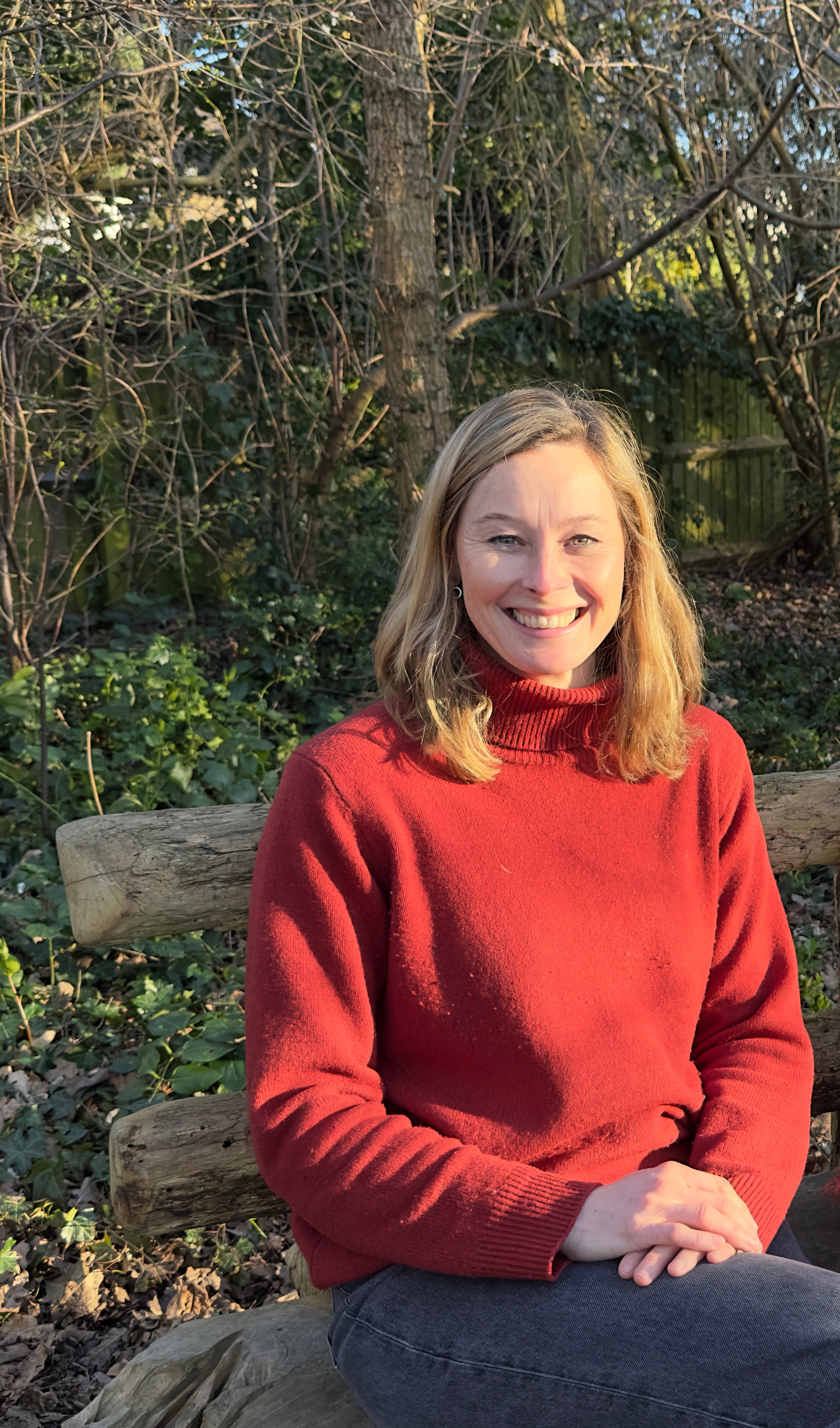Fashion was once about the thrill of the new, wardrobes bursting with outfits. Now, desire sits uneasily beside responsibility. We’re learning to live with fewer pieces and slower choices, creating deeper connections – to each other, and to the land beneath our feet.
This feature, the first in a six-part series reimagining fashion’s place in our lives, begins in the wild. Because if fashion has long drawn inspiration from nature’s patterns and textures, it has also helped devastate its ecosystems. The question is: can nature now teach fashion a new way to be?
Design activist Kate Fletcher believes that time spent in the natural world may not only restore our mental health, but transform how we dress, consume, and connect. She says: “Spending time in the park, in the woods, lolling about at the edge of a stream gives us an anchor point — a place of connection to the ecological systems that support our lives, including our fashion lives.”
.jpeg)
For Fletcher, a pioneer in sustainable fashion and author of Fletcher’s Almanac, nature isn’t a mood board; it’s a teacher, a disruptor and a kind of quiet resistance to the constant churn of consumer demand.
“It gives us experiences of fashion that are not about shopping for new clothes,” she tells me. “But about other places, possibilities and ideas of clothes that help us better see where we are and what else is there.”
Fletcher invokes Robin Wall Kimmerer’s celebration of the Honourable Harvest in her best selling book Braiding Sweetgrass. This set of guiding principles recognises that all plants and animals are part of a wider web of life, and that we should only take what we need, use in full, have minimal impact on the land, replenish what is taken, honour with gratitude and always interact ethically and respectfully with the natural world. She explains: “Whatever we do take, we have to be prepared: the Earth will ask something of us in return.”
In this view, fashion becomes not an expression of seasonal whim, but an act of gratitude and accountability.
“Disconnection breeds disassociation,” Fletcher says. “People find it easier to harm what they have no relationship with.”
That same disconnection – from soil, from seasons, from each other – is what community-focused innovator Tina Wetshi, co-founder of Colechi (a collective and research agency actioning sustainable development in the fashion industry), sees as the root of fashion’s dysfunction. “We’ve dehumanised the supply chain because we’ve separated ourselves from the people who make things,” she explains. “But humans are social beings. We’re supposed to live in community.”
.jpeg)
Colechi’s work centres on that: community, collaboration and storytelling. Wetshi says: “Working with nature isn’t just about plants and materials. It’s about understanding Earth, and understanding ourselves.”
She recalls a visit to Fernhill Farm, which is a regenerative site in Somerset, where she saw first-hand how the land could heal and replenish itself. “Watching the collaboration between people and nature changed the way I thought about value,” she says. “When you really understand the time and energy it takes to grow fibres, you start to see an acrylic jumper differently. Wool becomes not just a better material – it becomes the obvious one.”
If the speed of fast fashion numbs us, the slow rhythms of nature, and craft, can awaken us.
Wetshi lights up when she talks about You Can Knit With Us, Colechi’s joyful weekly knit club. “Time slows down,” she says. “You’re just there, vibing to a playlist, making something with your hands. It’s rare in London. It’s precious.”
This tactile slowness has deep consequences. “Knitting makes you understand labour. That clothes are made. Not just bought. We need to add the steps back into the story.”
Therapeutic ecologist Dr Georgina Gould, clinical lead at Dose of Nature, a registered charity established to promote the mental health benefits of engaging with the natural world, sees this too — in the people she works with who are overwhelmed by modern life. “People are racing through life, disconnected from themselves, their values, and their communities,” she says. “Nature gives us a moment to stop. To notice. To feel.”

Prescribing time in nature isn’t radical. I fact, it’s ancient. But in an age of scrolls and spreadsheets, it can feel revolutionary.
“Nature helps us to access our true selves,” Gould continues. “We stop being who the screen wants us to be, and instead find who we are. That’s when real change happens — to our habits, our desires, and our sense of enough.”
So what does it mean to bring nature into our wardrobe? It’s not just linen shirts and earthy palettes. It’s intention, repair and relationship.
“Visible mending is a radical act,” says Wetshi. “It says: I care. I’ve noticed. I’ve chosen to keep, not discard.”
Fletcher echoes this. “Clothes sit at the interface between body and world.
“They help us know things. They can let the world in, or hold it at bay. They are sensory tools — and we need to honour that role.”
What emerges from all three voices is a shared belief: fashion, at its best, is not consumption. It’s participation – in a wider system, a community, and a planet.
“Fashion and nature aren’t separate,” says Wetshi. “Fashion is rooted in celebration, creativity, and culture — and those are all part of nature too. If we shift the mindset, if we remove exploitation, we can make fashion something else entirely. Something beautiful. Something healing.”
In an era of climate anxiety, fast fashion, and endless scrolling, it’s easy to feel detached from the natural world. But could that disconnection be driving our desire to consume more – especially when it comes to what we wear? We’re conducting a short survey to explore how our relationship with nature affects our fashion habits, and whether social media plays a role in shaping our choices. It takes just a few minutes, your input is completely confidential and will help provide insight into modern attitudes on sustainability and consumption.
Survey: Are we disconnected from nature? And is it fuelling fashion overconsumption?
Colechi Video Credits
Featuring: Tina Wetshi Co-Founder Colèchi, Piave Wetshi Co-Founder Colèchi, Anila Preston Founder of EKOALPAKA, Andrew Wear and Jen Hunter Fernhill Farm
YKWU EAST Cohort: Neeraj Appadoo, Roșie Merriman, Aniya Sofia, Ruby Sorrell, Aramide Gillett, Tiffany Adela, Aeyesha Cundy, Natalia Reda, Judah Maffia, Corene Ang, Matilda Lunt, Sehar Mehra, Tansy West, Karla Thum




